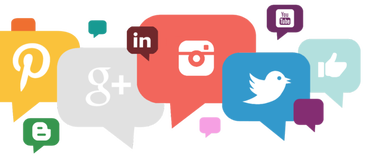 Once again I owe the inspiration for this blog to social media, which is ironic because it relates to the effectiveness of social media as a marketing tool. In this case, I read a Tweet from an author listing all the social media channels to which he subscribed, plus his blog, and bemoaning the fact that they weren’t generating much in the way of sales. I took a quick look at his Twitter feed and spotted at once what the problem was: a lack of engagement. 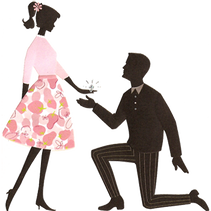 No, not that sort of engagement! No, not that sort of engagement! He had made a few re-tweets and posted a few “fake engagement” type posts (I’ll be returning to that shortly), but there was nothing on his feed that would encourage me, as a reader, to check out his work. So, it was unsurprising that despite all the channels he was trying to use, he was getting little return. Many authors see social media as a way of plugging their books and no more. That is where they go wrong. Yes, you may generate a few sales by metaphorically saying “Buy my book”, but it is just as likely that readers will scroll past and read a Tweet that isn’t trying to sell them something. 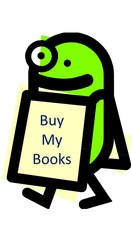 Even if they are interested in the book, they have to click away from the social media channel to check it out, and that interrupts their social media experience, so the best that can be hoped for is that they check it out later. That rarely happens because, by that time, the post has been lost amongst the thousands of others that have since appeared on the timeline. But if social media is so poor when it comes to selling books, why do so many social media gurus still champion it? Because social media is a useful tool – but you have to use it the right way. All tools have to be used correctly if they are to provide you with the right results and social media is no different in that respect. 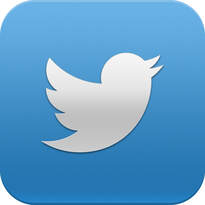 I’ll be using Twitter as my demonstration model, but the same problems apply with most social media channels. So, what do people do wrong? The most common mistake is “fake engagement”. This produces them lots of nice engagement data but doesn’t produce the desired results. In other words, it looks like it is working if you check the number of responses that a post got, but it doesn’t actually sell any books. So, what is “fake engagement”? Well, let’s start with what I mean by engagement. Engagement is supposed to be a conversation, which builds up a relationship, which then leads on to curiosity about the author’s work. 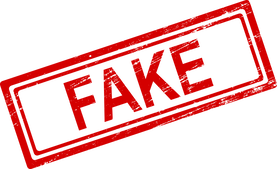 If the approach used generates responses but without that conversation emerging, then it is fake engagement, because it is one sided. It comes in many forms, but these are the most common: “Can anyone see my Tweets?” There are variations on that question, but the basic idea is that the viewer responds with a “yes, I can” answer, which appears in the Twitter analytics as engagement. But it is one sided engagement as no conversation emerges from it. 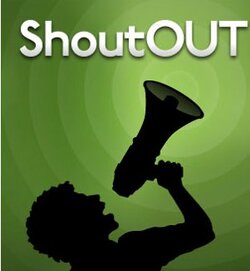 The “Writer’s boost” or “author boost”. This is the one I hate the most, because it uses the desperation of other authors to create the fake engagement. I don’t know of any author who has ever made a sale through responding to that sort of invitation (please comment below if you have). It comes in many forms, including posting links to books or blogs or posting cover images. A variation is asking authors to post the first line of their book or from a chapter, or to say something about a character. The inference is that the curiosity of readers will be excited and they will want to know more, but as the post is appealing to authors, not readers, there is little likelihood of that happening. (yes, I know authors are readers too, but in this instance they are responding as authors, not looking for their next new read). These types of post generate a lot of responses from authors, often several hundred but, again, it doesn’t create actual engagement. There are variations on this approach, such as asking people to recommend books. It usually starts with the poster suggesting they suddenly have some spare cash to spend and they want to spend it on books. 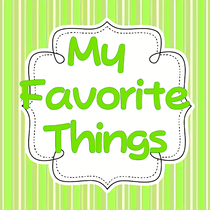 “Who/what is your favourite ….?” There is a natural impulse to respond to those sorts of Tweets, but I would advise against it. In its most harmless form, answering the question is just another form of fake engagement. However, it can also be a form of data gathering. Don’t be surprised if you see a sudden surge in advertising on your timeline related to products associated (however tangentially) with your answer. Some dialogues do emerge from those sorts of questions, but they tend to be between other responders, not with the person who asked the question in the first place. That data also appears in their engagement statistics. The questions take many forms. Another variation is “What goes on first, the peanut butter or the jelly?”, or “What goes with peanut butter (you can’t say jelly)?” The British version of that is “Jam or cream?” (Brits will know what that is about) but it’s still fake.  “I’m having a bad day.” Yes, I know that there are sometimes people on social media who are genuinely having a bad day. But that only makes this sort of fake engagement worse, because it is the very worst form of manipulation. They may look like they are saying “Feel sorry for me; sympathise with me; send me pictures of kittens or puppies”, but all of these are fake engagement. It boosts their engagement numbers and makes their feed look popular, but they don’t actually engage with anyone. And without that engagement, they will never sell any books. And they certainly won’t buy any of your books if you respond. 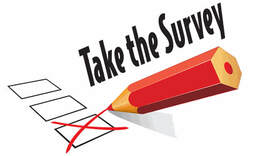 Surveys If you want to boost your engagement stats, post a survey. People love them. But they aren’t real engagement. I could keep adding to this list, but I’m sure you get the idea by now that fake engagement is about getting people to respond to a post, not about actually taking an interest in anything the responders have to say. So, what is real engagement and how do you use it to sell books? 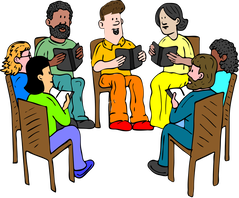 Find the real readers. Find the real readers. First of all, you have to search out and engage with readers, not with other authors. If you are an author, you are trying to attract new readers. That means talking to readers about books.. If you are a sci-fi author, you need to talk to sci-fi readers. If you are a romance author, you need to talk to romance readers, etc etc. How does that sell books? It doesn’t. At least, not directly. Social media isn’t a “direct” sales channel. You can’t draw a line between a post and a purchase. 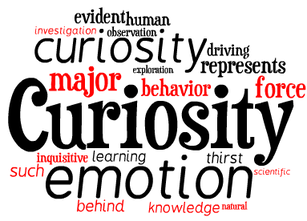 Social media has to be used to excite people’s curiosity about you and the way you do that is the same as you would in real life. You don’t walk up to someone in the street and say “buy my book”. So why would you think you can do that on Twitter, or Facebook, or Instagram? No, you engage people in conversation and the best form of conversation to engage them in is the thing they like to talk about the most – themselves. And, eventually, they feel obliged to ask “what about you?” At that point it is OK to mention your book – because they asked.  BTW, this is where a pinned post about your book is essential. Because they may not ask about you or your book, but they may go and take a closer look at your feed and that’s where they will see the post about your book, if you have pinned it. You still may not make a sale, but you may at least have captured their interest enough to take a look at your book. It is very much a “soft sell” approach, but it is more likely to be successful on social media than a hard sell. How do you identify readers?  It isn’t easy, unless they have it in their biography or they mention it in their posts, but if you assume that everyone is a reader, then you won’t go far wrong. The worst that can happen is that you use social media for what it is meant to be used – for being sociable. Does that all sound like hard work? OK, who told you that it would be easy? Because if anyone did, they lied to you. As I have said in many previous blogs, there is nothing easy about marketing, and that includes social media marketing. Using social media as a tool to promote your work is hard and requires a lot of time and effort. But, done right, it can be effective. Done wrong and it gets you nothing, as the person who inspired this blog found out. If you have enjoyed this blog, or found it informative, then make sure you don’t miss future editions. Just click on the button below to sign up for our newsletter. We’ll even send you a free ebook for doing so.
0 Comments
 In last week’s blog we focused on some of the positives of being an Indie author, so it is only fair that we now look at some of the negatives. But we here at Selfishgenie are positive sorts of people, so we really want to turn the negatives into positives too. It isn’t always possible, but we have racked our brains and we think we have found a few ways of doing that. We’re not going to go all “turn that frown upside down” cliché on you. But we do want you to know that there is nothing about the negatives of being an Indie author that you should ever feel you can’t do something about. So, here we go with the negatives of being an Indie author. 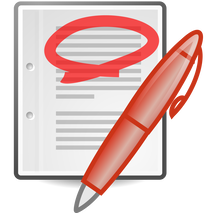 1. You have to edit your own work. Some people love editing, some people hate it. But it is an essential part of being an author. If you want your book to be the best version of itself that it can be, you are going to have to do some editing, because the first draft of any novel is never going to be perfect. The first step to editing your draft is to put it out to beta readers. Many Indie authors think this is the final step because they want approval for their finished product. It must therefore be quite demoralising when their beta readers tell them that the book still needs work. So, go to the beta readers first, get their feedback, fix what needs fixing, then go back to a different set of beta readers for a fresh perspective. The feedback should be less damning and more complimentary, but you can still expect some suggestions for improvement. Rinse and repeat until the beta readers have no more suggestions for improvement, or until you think the suggestions are no more than nit-picking. There is no point in putting a book out there and hoping it is good enough. This process provides a degree of certainty. If all else fails, you can find editors on-line and pay them to edit your book. Be very sure of what you are paying for, however. Particularly make sure you understand the difference between editing the text and editing the narrative.  2. You have to do your own formatting. True, but if you set up a template so that from the first word of your book it is already formatted correctly, you will save yourself a lot of time. You may want two formats, a draft version that’s double spaced for later editing, and a final version, but word processing packages allow for speedy conversion from one to the other. We encourage authors to compose in the final format, because we edit using word processors too, which means double spacing isn’t required. We even publish a formatting guide so that potential authors can impress us by showing that they have researched us and know what we are looking for from them. There really is no witchcraft to formatting:
These aren’t hard and fast rules but take a look at the books you love the most and see how they are formatted. Copy them and you won’t go far wrong. 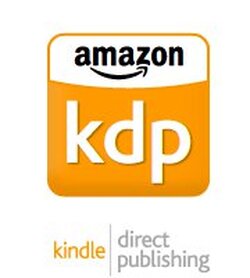 3. You have to upload your books onto self-publishing sites yourself. This can be time consuming the first time you have to do it, but after that you can upload an ebook and a paperback in less than an hour. Some sites are more difficult to work with than others, but if you do anything they don’t like they will tell you why, so you can correct it before publication. If you get the formatting right in the first place, the problems will be reduced. Covers are most tricky, especially for paperbacks, because they have to take into account the thickness of the book when it has been printed. Investing in a package such as Book Brush and learning how to use it is well worth the money and the time. 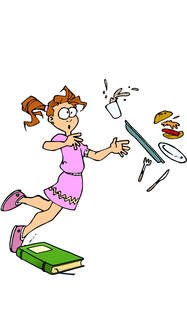 4. You have to market the book yourself. There can be no doubt that this is the hardest part of self-publishing, and it is also the part that Indie authors spend the least time and money on. Sorry, but if you think people are going to stumble across your book by accident, you are fooling yourself. If you think that “word of mouth” will sell your book, you are fooling yourself. If you think that plugging your book on social media will sell your book, you are fooling yourself. Yes, both word of mouth and social media have a part to play in book marketing, but it isn’t as big a part as some people make out. Book marketing requires knowledge of how to do it if it is going to work. Unless you want to spend money getting other people to do it, it is far better to spend money on learning to do it for yourself. Actually, you don’t have to spend money on learning. There are free on-line courses on marketing that will teach you the basics. But you have to invest the time and the effort if you want it to work. Investment in yourself is an investment that always pays back – so do it. But at some point you will have to pay for marketing services, especially advertising. We have posted several blogs on this subject and you can find them all in our archive. But the golden rule is caveat emptor – buyer beware. There are lots of “businesses” out there that promise a lot but deliver little. Look for recommendations from other authors and check their sales rankings - because they don't lie. That’s one of the best ways you can use social media when it comes to marketing.  5. Readers don’t take self-published authors seriously. Unfortunately, there is little we can do about that sort of prejudice. Also unfortunately, there are a lot of poorly written self-published books that would seem to confirm this bias (though not yours, obvs). There are a couple of things you can do to try to change the minds of readers when you encounter this bias. The first thing to do is to challenge this view. There are a limited number of agents and an even more limited number of publishers, so author supply outstrips publisher demand. Just because an author can’t find a publisher it doesn’t mean their book isn’t worthy. It just means there is no space for them at the table right now. The other thing you can do is to point out the growing list of bestselling self-published authors. We gave some names in last week’s blog, so you can scroll down and see them. Saying something like “How do you account for the success of L J Ross, who is self-published and has sold over 7 million books?” will leave the prejudiced person looking for a way out of the conversation. If they reply with “they got lucky” then start reeling off a few more names and asking if they all “got lucky”. Or maybe they sell so many books because they are real authors who tell stories that people want to read. I can’t promise that you will change a lot of minds, but it is only by challenging prejudices that we eventually eradicate them. If all else fails, offer them a free copy of your book so they judge you on merit instead of pre-judging you. 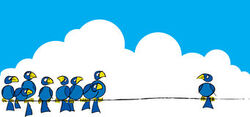 6. You feel so isolated and/or you feel like an imposter. Having a publisher comes with a support network that affirms your ability as a writer. And there is always someone available at the end of a telephone who understands what you are going through and is there with words or comfort. But just because you are self-published, it doesn’t mean you are alone. Join a writer’s group. Even if you live in an isolated community you can join virtually. Zoom has become a great boon when it comes to meeting other writers and discussing your problems with them – and being there for them to discuss their problems with you. Join on-line writers forums, for the same reason – but don’t try to use them to plug your books! I don’t recommend social media as your first port of call for support. While the vast majority of authors on it are supportive, it only needs one troll to start on you and it can ruin your day. Find the safe spaces and stick to them. But always remember – you are not alone. If the worst comes to the worst, you can always email us, even if you aren’t one of our authors. We support every Indie author, regardless. See our “contact” page for our email address. If you have enjoyed this blog, or found it informative, then make sure you don’t miss future editions. Just click on the button below to sign up for our newsletter. We’ll even send you a free ebook for doing so.  For this week’s blog I’d like to spend some time looking at the upsides of being an Indie author, of which there are far more than you may think. As Indies, we are all aware of the downsides. I may devote a blog to them in the future, but this week I’m trying to stay positive, so I won’t be mentioning them other than to acknowledge that they exist. But those negatives colour our thinking about who we are, what we are and what we are capable of achieving if we do a bit of research and are prepared to knuckle down and do the work. I’m not talking about the work of writing a novel. You have already done that, or you wouldn’t be thinking about publishing. 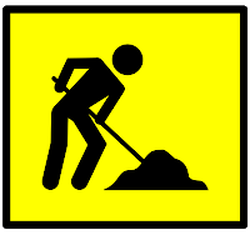 No, I’m talking about the work of being a self-publisher. It is a job in itself and it requires all the disciplines of any other type of job if you want to succeed. There is no nepotism in self-publishing, because there is no daddy (or mummy) figure to help you up the ladder. There is just you. If you aren’t prepared to put in the work, there is no point in reading blogs (or books) about self-publishing because you won’t make it. There is no such thing as “luck” when it comes to selling books (there is no such thing as luck anyway, IMHO). There is only hard work and dedication. Just like any other job, you either have to put in the hard yards, or you have to sleep with the boss, which is a bit difficult if you are the boss. So, what are these upsides? 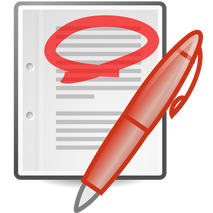 1. You have complete editorial control. Any editor working for a publisher is expected to produce a sure fire winner at the end of the editorial process. That means that if they don’t like the way you tell your story, they will want you to change it. But think about that for a moment. Your book is like your child. Would you change your child if a complete stranger told you it was ugly? No, of course you wouldn’t. The same applies to your book. You don’t have to change it if you don’t want to. There is a caveat to that. If your beta readers (you do have beta readers, don’t you?) tell you your story is ugly, it is worth listening to them. But you are still in control of how your story is told. 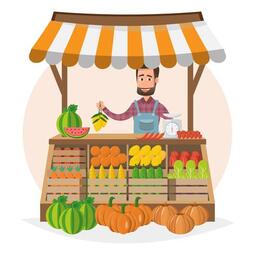 2. You can get your book to market far quicker. There is no doubt that mainstream publishing is a slow process. From acceptance of a submission to launch date of the book can be as much as two years, depending on the publisher. There are many reasons for this, but the main one is all the boxes that have to be ticked on the Gantt chart to get it to publication day. But for the Indie, once they have decided that the latest draft is as good as the book is ever going to get, they can launch their book the same day, if they put their mind to it. Realistically I would suggest a two to three week timeline, especially if you need a cover to be designed, but the timeline is entirely in your hands.  3. The Indie can set their own price for the book. That means the Indie can get very competitive in their pricing. Not for them the £19.99 (or more) hard backs, followed by the £13.99 paperback and the £9.99 ebook.. Indies don’t have to have a hard copy version at all if they don’t want to – though there is still a large market for paperbacks. Competitive pricing allows a lot of Indie authors to establish a readership amongst people who don’t have much of a budget for books. That earns them reviews and that in turn stimulates more sales. And without all the overheads of a big publishing house, the Indie can actually earn larger royalties per book than many mainstream published authors. Some of our authors are now earning 4 digit royalties per month and that’s after we at Selfishgenie take our share. While we may not be true Indies, we operate on the same cost base as an Indie which means our authors’ earnings are comparable to those of any Indie author who does it all themselves.* 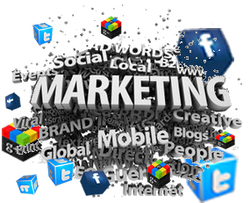 4. The Indie can control their own marketing. If book sales are flagging, the Indie can give them a boost by running promotions and advertising campaigns. Most mainstream publishers lose interest in a book after about 12 months, because they have moved on to new projects, leaving their authors languishing in the doldrums with ever decreasing sales. Mainstream Publishers will deny that, of course, but think about it for a moment. How often do you see “sponsored ads” on Amazon for a mainstream published book that is more than a year old? I’ll give you a clue – you won’t. Book stores have removed the book from the shelf to make room for new releases. The mainstream publishers rely on Amazon’s algorithms to keep their back catalogue in front of readers, based on reading preferences and previous purchases. But if the Indie’s books sell a few copies, they will appear in front of readers in exactly the same way, because the algorithms work for the Indie just the same way as they work for mainstream publishers. A mainstream published author can’t tell their publisher to do more marketing, but an Indie can do it for themselves.  5. You don’t have to pay an agent. Agents are only necessary to open the door to a mainstream publishing deal. But they want a big share of your royalties for doing that. It used to be around 10%. Now it is closer to 20% and can be higher for the most successful agents. And it comes from the author’s royalties. The publisher doesn’t pay the agent a penny. I’m not saying agents don’t earn their money, but I would prefer to see a ceiling placed on their earnings from a book, rather than it being a lifetime commitment. We’re talking about a business relationship here, not a marriage!  6. You get all the credit. If your Indie book is a success, no one else can claim the credit. No agent can say “I discovered that author”. No editor can say “I made that book what it is”. No publisher can say “Without me, you would never have heard of this author”. And there are a lot of highly successful Indie authors who can make their claims for success. Here are a few names: L J Ross, Mark Dawson, Rapi Kaur, Rachel Abbott, Phillip Goodrich, Christopher Paolini, Maria E Cantu Alegre and Howard of Warwick (pen name), Between them those Indies have sold millions of copies of their books – for L J Ross alone it is 7 million. BTW, while researching that list I actually bought one of the author's books, because I read the genre in which the author writes and had never come across him before. I was already familiar with Mark Dawson, because I have read several of his books. I’m not going to pretend that being an Indie author is easy. If it was, that list of successful Indie authors would be a lot longer (actually, it is. I just stopped after 8 names because I had no more time for research). But my point is that if you are an Indie, it doesn’t mean you can’t become a big name. If you have the right book and you market it the right way, it will sell. So, all you Indies that have read this far, give yourself a big pat on the back and, the next time you are feeling frustrated about not being signed by a big publishing house, remember this list of upsides. Success really is within your reach. You just have to grasp it. I have only listed 6 positives, but that is because I don’t have time to write about more (I do have a business to run too). Please feel free to share your positives in our comments section below. * If you want to be part of this success story, you can find out how on our “Contacts” page. If you have enjoyed this blog, or found it informative, then make sure you don’t miss future editions. Just click on the button below to sign up for our newsletter. We’ll even send you a free ebook for doing so. 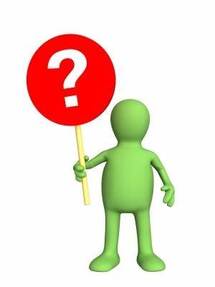 It’s a question a lot of Indie authors ask themselves, but isn’t easy to answer: “Should I do a free book giveaway?” If you only have one book out there, then the answer is “No” (but there are caveats to that – see later in this blog). The purpose of a free book promotion is to stimulate interest in your books, so that you sell more. But if you have given it away for free, who are you going to sell to? The people who have already had it for free aren’t now going to buy a copy, and if someone didn’t download it for free, they are hardly going to pay for it once the offer ends (again, see the caveats later). No, the idea of a free book promotion, or giveaway, is to showcase your writing, so that if readers like the free book, they will then buy your other books. For series writers this is a great incentive for doing a free giveaway. And for non-series writing authors with more than one title available, there is something in this for you as well.  "If it's free, I'll take 10, no 20, no 100 ...." "If it's free, I'll take 10, no 20, no 100 ...." OK, let’s deal with the elephant in the room. Yes, it is true that some people will download the free offer just because it is free and won’t then come back to buy any more of your books. But that is what I call “collateral damage”. It is unavoidable I’m afraid. But mixed in with the freeloaders will be readers who will try your book for free and then go on to buy more of your work if they like what they have read. I know this to be true because I have done it myself. I don’t think I’m unusual in this. At Selfishgenie we have also proved it with previous giveaways, which have resulted in an up-tick in sales of the other titles in the series after the promotion has ended. When we talk numbers later in this blog, they are based on actual results from previous promotions. 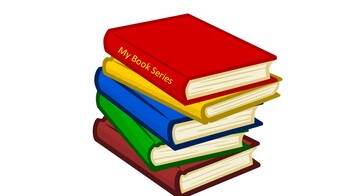 So, if you have more than one title available or you are a series writer, doing a free book giveaway can boost the sales of the rest of your books. You may have sensed a “but” at the end of that sentence. If you did, you have excellent intuition. But making a book free is no good unless you tell potential new readers about it, so that they can download it. There are free book listings on most etailing sites; Amazon certainly has one. However, a quick search we did for free books on Amazon returned 9,000 results. The chances of your book being on one of the early pages of the search results are pretty slim and if your book is anywhere more than five pages down the results, there isn’t much chance of it being found because people hardly ever go that far down search results.. 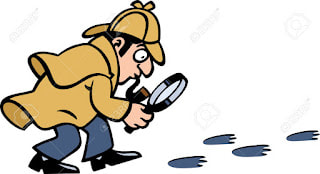 I refined that search to “most downloaded free books” and the list was reduced to just 3 pages, but to get into that list your book must have already been download for free, so it won’t appear there on the day you start your promotion. It won’t appear there until someone, (actually several someones), has downloaded the book. Social media promotion will probably shift a few downloads for you, if you have a lot of followers. However, there is no guarantee that your posts about your free offer will be seen. If you only have a very small following on social media, then your reach is limited unless you get a lot of re-Tweets or shares. It may seem counter-intuitive, but you will probably need to spend some money to give your book away for free. 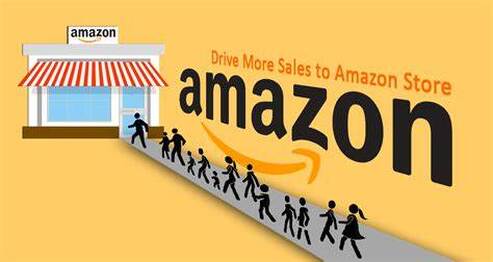 I don’t think Amazon or Google advertising are cost effective ways of doing that. You pay by the click, so it is difficult to control your spend because you probably need a lot of clicks to get enough downloads to start generating paid sales later, which means setting a high daily budget for your campaign. So, you need to look at other, cheaper ways to promote your free book. Ways that will generate lots of downloads. And you really want to know how much those downloads are going to cost you in the first place, so you can work out if you have any chance of getting your money back in paid sales. I’m talking about book promotion sites, which offer a fixed package for a fixed price.  Now, there are two types of book promotion sites. There are those that use social media to promote your book and those that use a wider range of approaches (which may include social media but may not). The most important of these other approaches is email lists, because they are bound to be seen by readers who are on the list. Please, don’t use sites that only offer social media promotion - you can do that for yourself for free. Ignore the fact that your book will be “featured” on the promoter’s website. This isn’t the best way for the promotion to be seen. If that were the case, then it being on Amazon should be enough – and it isn’t. There is usually no guarantee that the readers the sites reach are the right readers for your genre, however. You may be an author of fantasy books and some of the people on the email list may only read romance, or crime drama, or whatever. But at least the readers of fantasy will also see the promotion. Genre preferences are one of the reasons why a 1,000 clicks may only get 100 downloads.  We have recently run a trial using a book promotion website, for our title “The Magi” which produced some promising results. The site we selected boasts an email list of over 300,000 readers. The site promised a guaranteed 1,000 downloads for our free book but we actually only got just over 200 (I’ll return to that later, to explain how the guarantee works). We usually think in terms of 10% of downloads generating new readers for a series or, in this case, approximately 20 new readers. So, here’s the maths (or math if you are American). 1. The promotion cost us £67 ($75) after using a discount code found in this blog 2. The book sells for £4.99 on Amazon. 3. One sale generates about £3.50 in royalties. 3. There are 9 books in the series. 4. If a reader who downloads the first book for free then buys the other 8 books, then it generates 8 x £3.50 = £28. 5. Therefore 3 new readers returns a profit of (3 x £28) – £67 = £14 profit on the promotion. But we reckon 200 downloads should return 20 new readers, so the anticipated profit is about £490. Impressed? Ok, too early to place an order for a Ferrari, but profit is profit.  But we were guaranteed 1,000 downloads, so what happens now that we have fallen 80% short? The site owners promise us a pro-rata refund on the cost of the package. It is “site credit”, so we can’t take it in cash, but it does mean we can run another free book promotion in a few months’ time and it won’t cost us so much. It also means that our profit for this campaign will be higher because of the refund. As for why we didn't get the guaranteed 1,000 downloads, we'll return to that later. There is another aspect to the free downloads that we haven’t yet mentioned and that is the reviews that they generate. If you haven’t had many reviews for your book up to now, then this is a good way to get some more. I mentioned caveats earlier and this is one justification for an author with a single published title to run a free book promotion.  Remember, there were 200 downloads. That may generate a lot of reviews. Even freeloaders write reviews sometimes. And we all know how important reviews are for future sales. There is another time when an author with only one published title may consider doing a free book promotion. That is when they are about to publish a second title. Putting the first book out for free can stimulate demand for the second book. To make sure that this is capitalised upon, the author must put their new title on “pre-order” before running the free promo, and they must include a link to the pre-order at the end of the free book. That means uploading an amended manuscript that includes the link, but that is the work of moments. 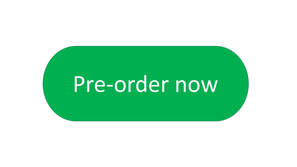 Once the pre-order goes live, whatever sales have been made will catapult the book up the sales rankings, which makes the book look more attractive to other readers who may not have taken advantage of the free download. However, it does require the book launch to be properly planned and timed, so that everything happens at the right time and in the right order. The book promotions site told us that 92% of the promotions they run for free books reach the 1,000 download target, so why didn’t ours do so well? We think we have some answers. We ran our promotion from Thursday to Monday and the number of downloads we got over the weekend was very low compared to the other 3 days. This suggests a lot of the email addresses to which the promotion is sent are work related, so no response at the weekend. But there is another possible reason.  Author Robert Cubitt Author Robert Cubitt The author of the free book, Robert Cubitt, is British but around 80% of the readers on the promotion site’s email list are American. Our actual downloads reflected that proportion, with about 20% coming from outside the USA (UK, Canada, Germany, France Netherlands and Australia to be precise) and 80% from within. Sad to say that many readers will only read books by authors who are the same nationality as them. I don’t know why this should be. I guess people like books that are either written by people like them or are about people like them. But The Magi is a sci-fi series and none of the characters are like the readers (unless there are aliens amongst us) so it shouldn’t matter. It shouldn’t matter for the fantasy genre either. But it does seem to matter, so we Brits will have to suck it up and make do with the scraps from the table. But a potential £490 profit is quite a big scrap and is certainly better than no profit at all. This is NOT a recommendation, but the website we used for the promotion we have discussed here is Book Butterfly. If you missed out on our recent free book giveaway, don’t despair. You can still get a book for free just by signing up for our newsletter. Just click on the button below (excludes “The Magi Box Set). |
AuthorThis blog is compiled and curated by the Selfishgenie publishing team. Archives
June 2025
|
 RSS Feed
RSS Feed